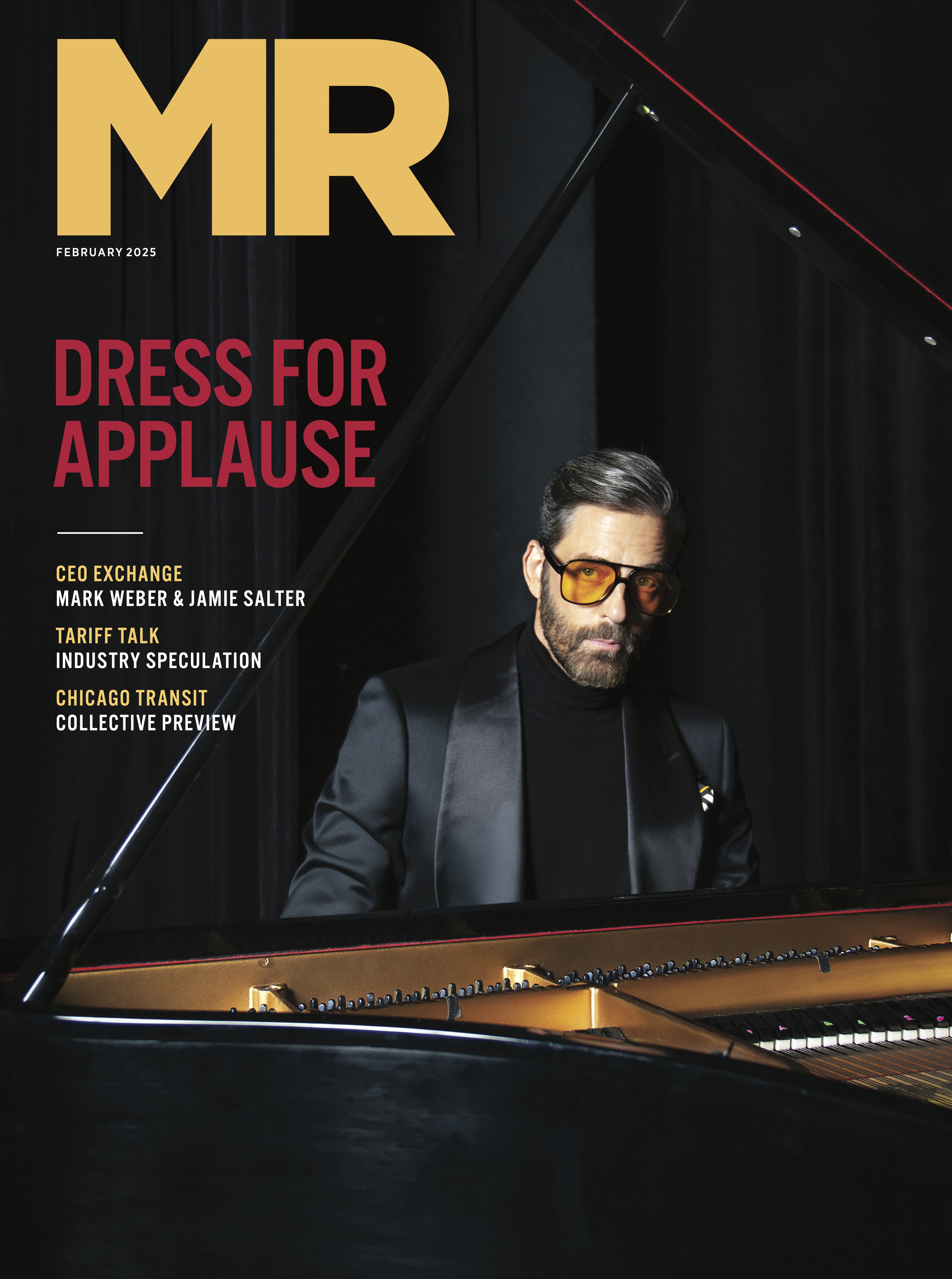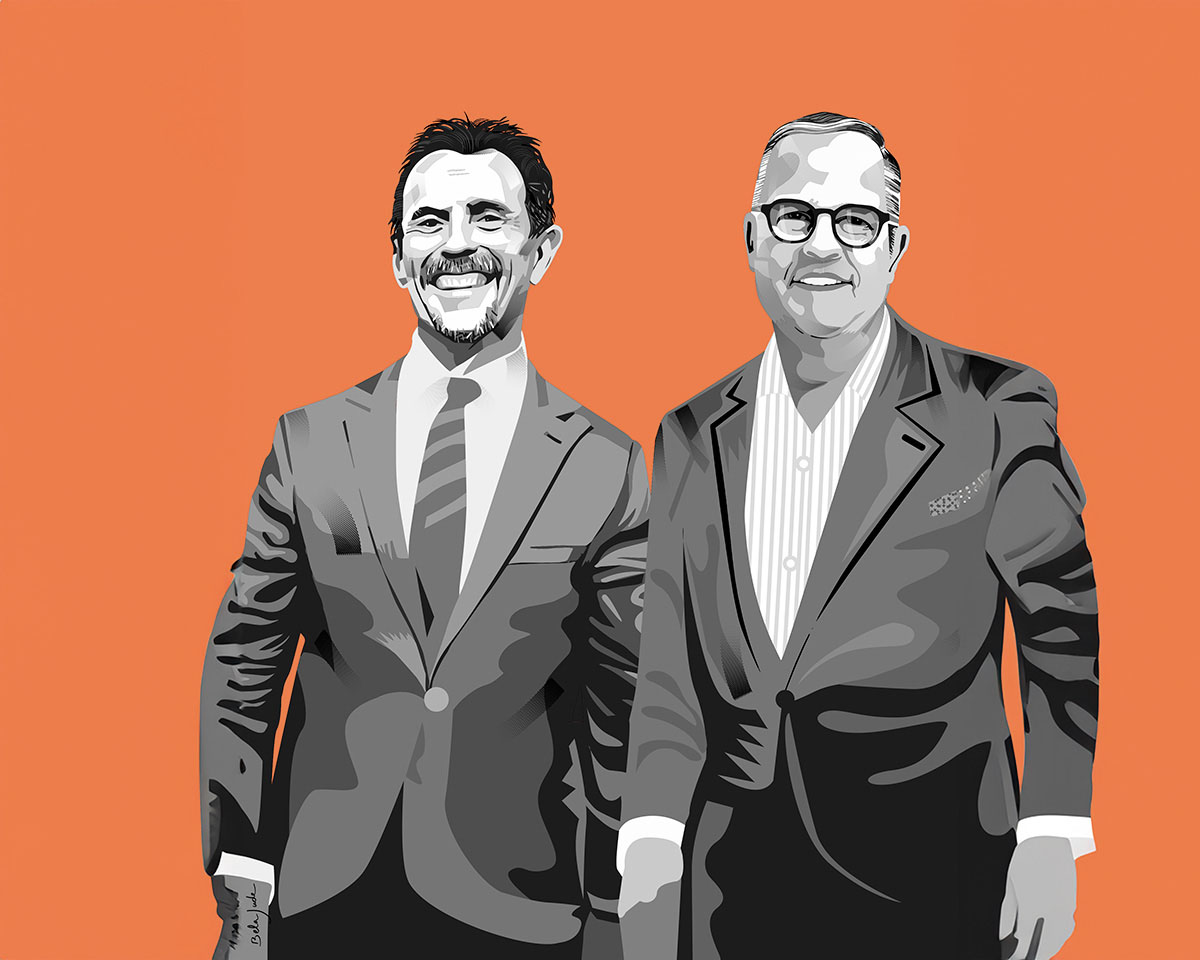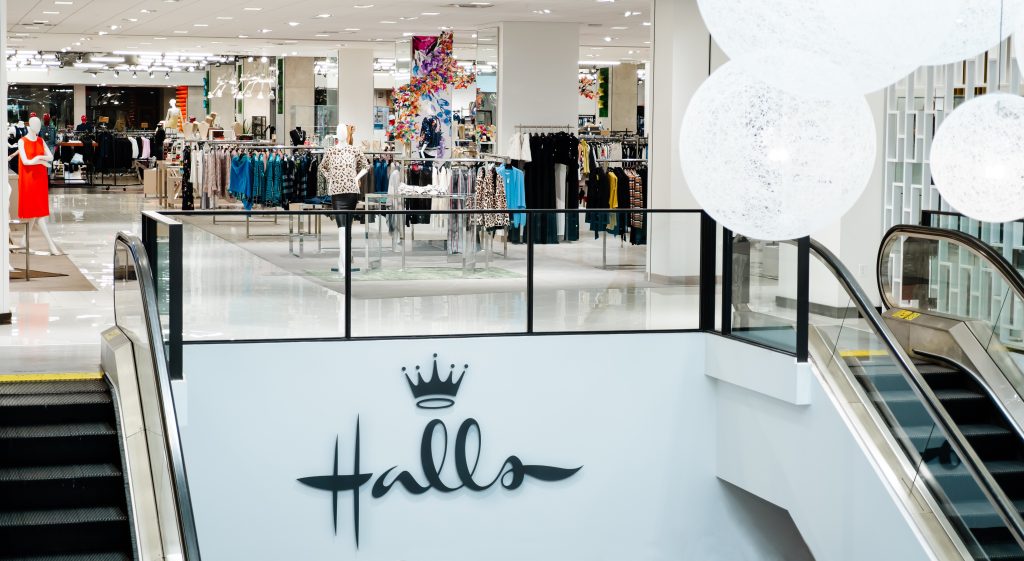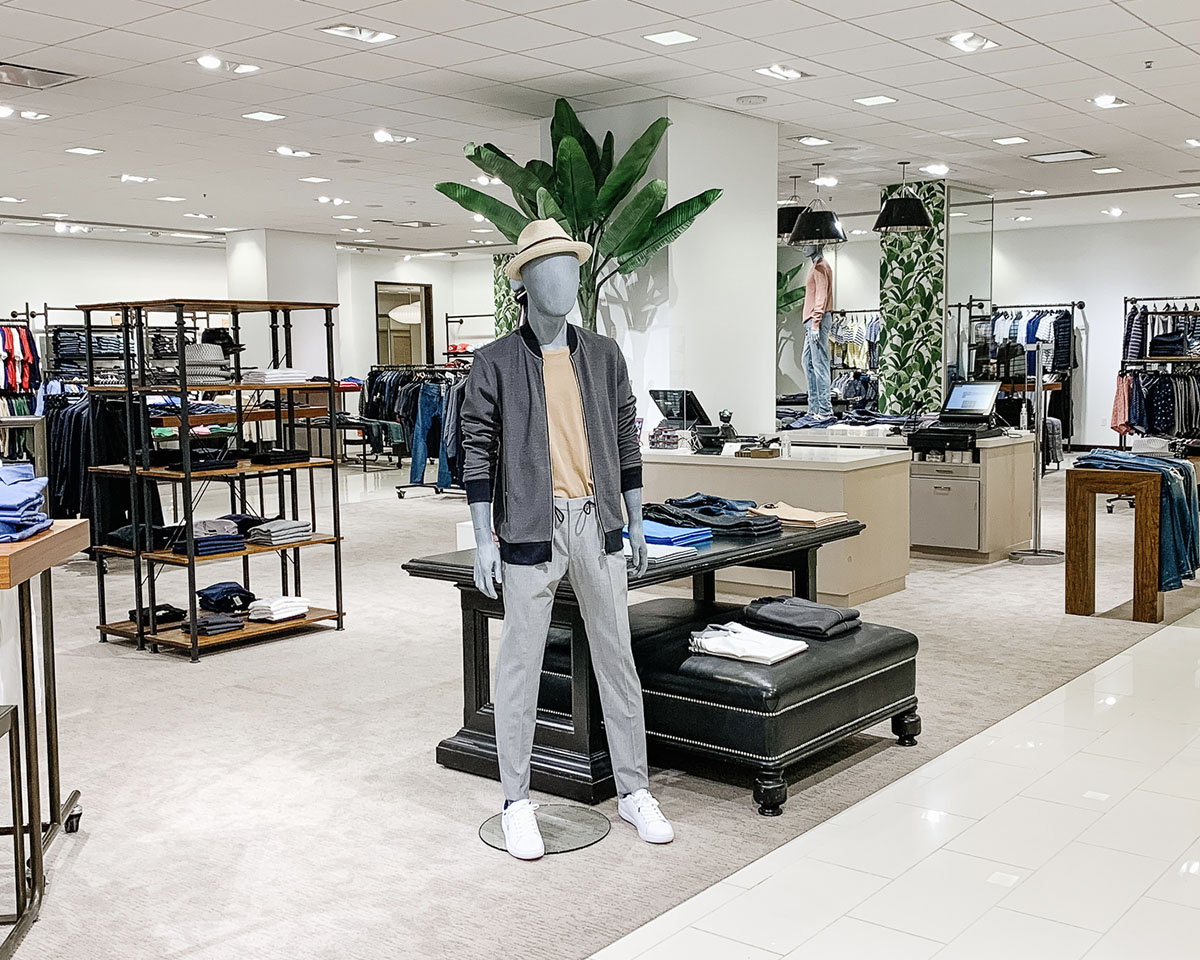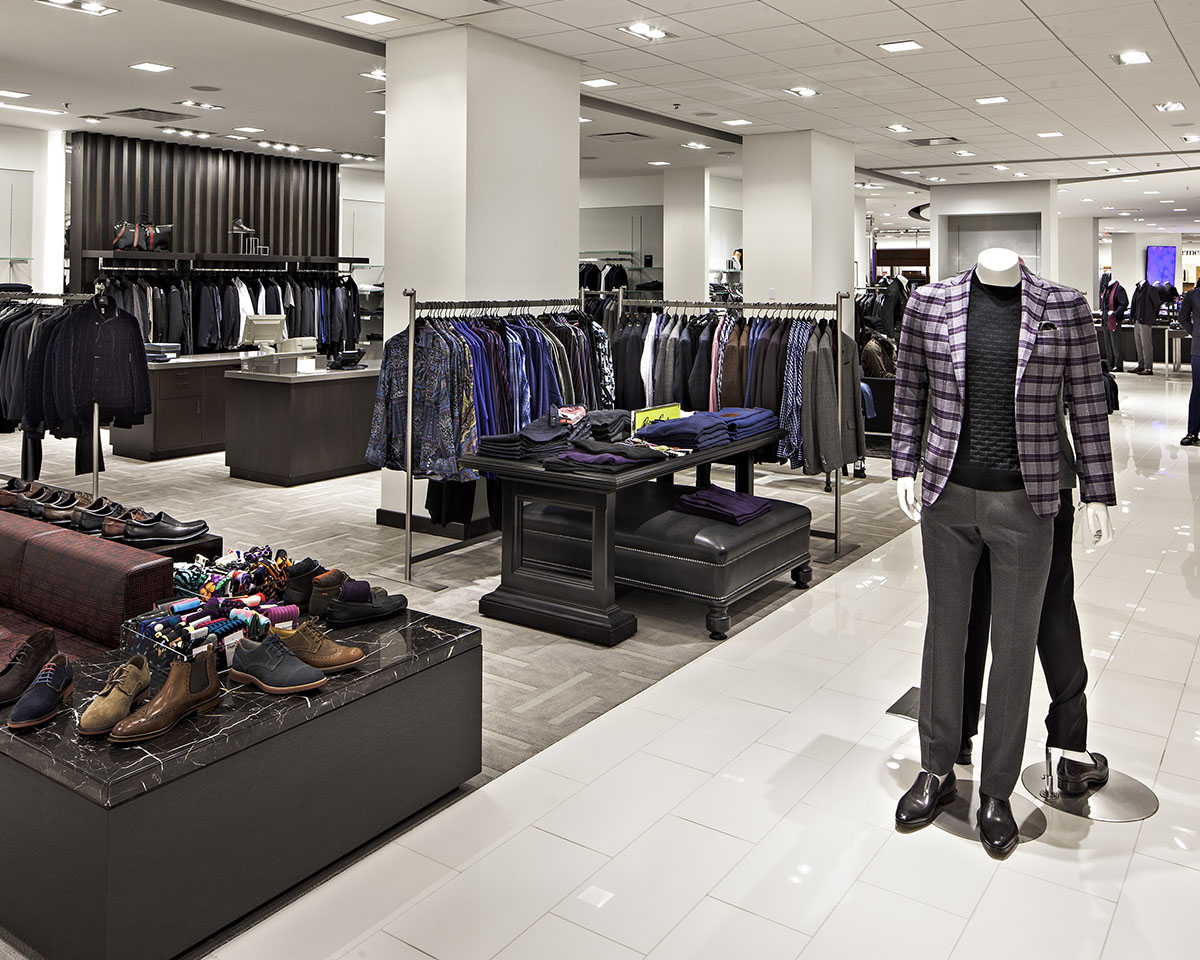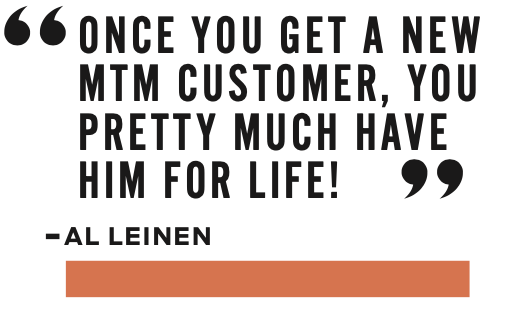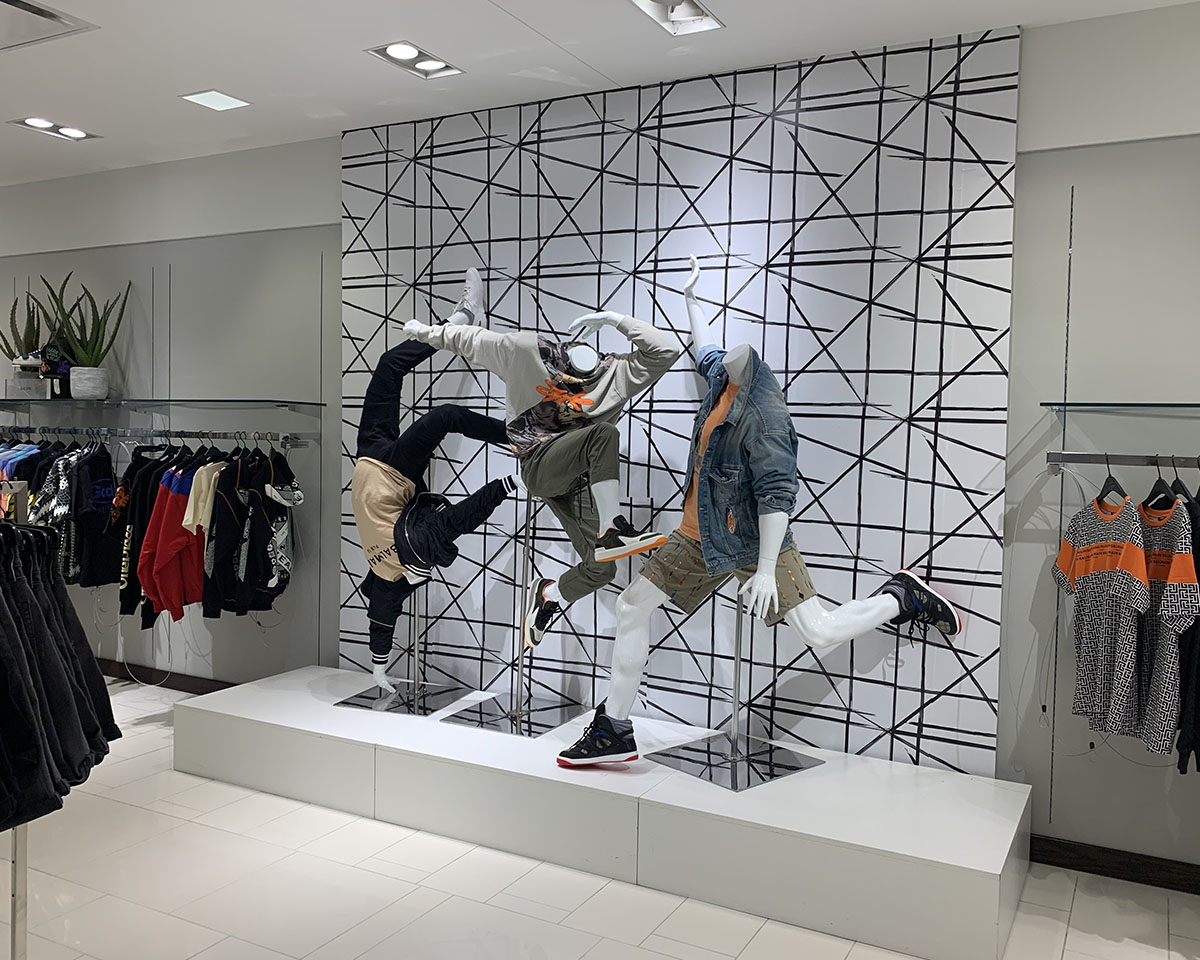FROM OUR JULY 2024 MR AWARDS ISSUE: AL LEINEN AND TODD EPPERLEY, HALLS KANSAS CITY: DEPARTMENT STORE OF THE YEAR
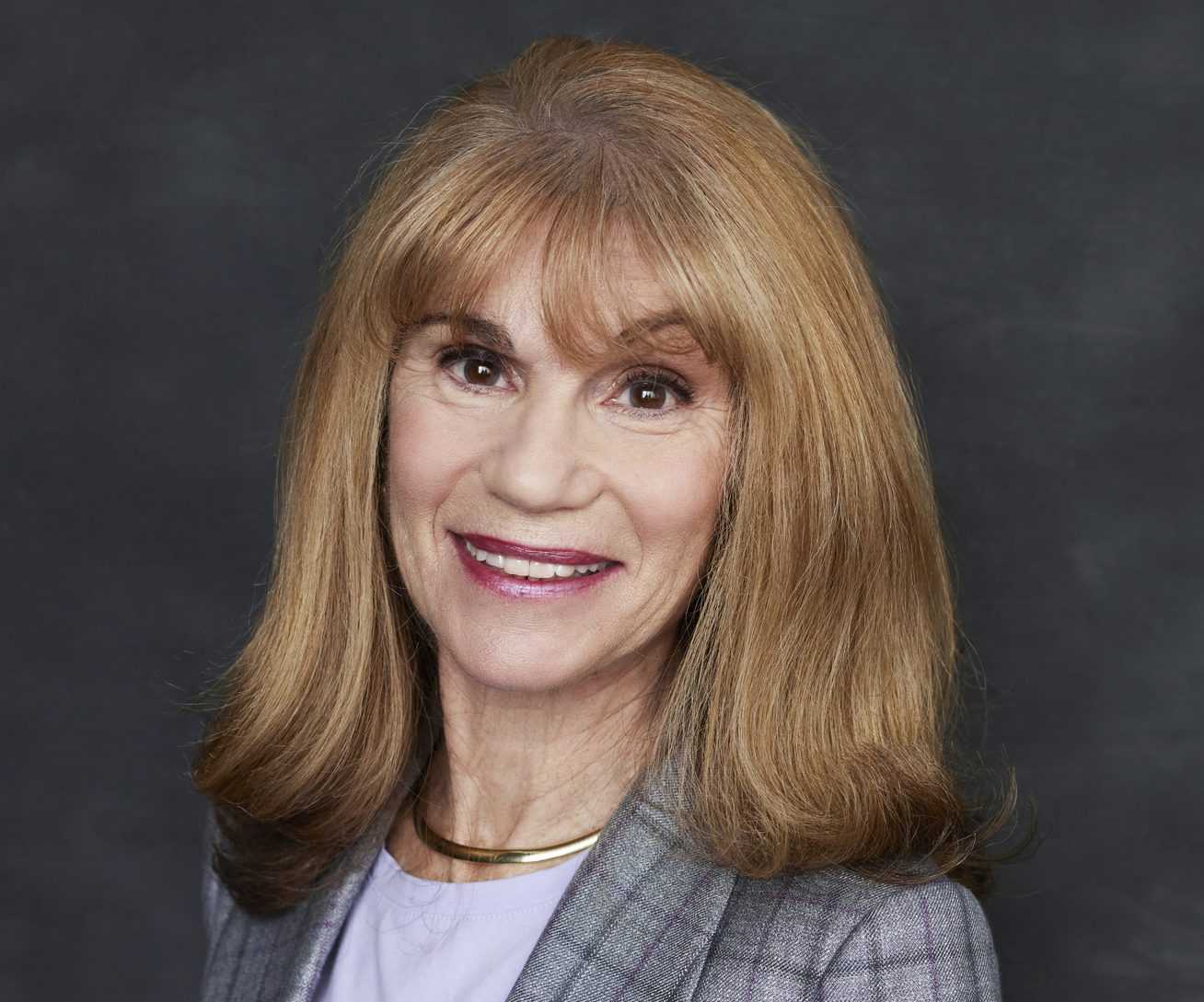
The entire MR team proudly presents our July 2024 MR Awards issue. If you haven’t received a hard copy, please page through a digital version at Issuu, and we’ll continue to post individual stories here on MR-mag.com. If you haven’t been getting MR in print, be sure that you are on our mailing list for future issues by completing this form.
Success, as officially defined in the Oxford dictionary, means “the accomplishment of an aim or purpose.” We prefer a different definition, one we discovered in writings by children with disabilities: “If you achieve what you want and are happy, that is success.” And to that, we add our own observation: the most successful people are those who follow their dreams and inspire others to follow their own. May dreams come true for MR’s innovative and intrepid 2024 honorees. May you keep on creating.
A beautifully merchandised, family-owned department store with top luxury brands and two of the nicest merchants in the industry: what a concept! Here, we talk to the two guys who make it happen in Kansas City.
Let’s start with some background: how did each of you end up in retailing?
Al: Being in this business now for 40+ years, it’s tough to remember the beginning. I grew up in a small town in Iowa, went to school in Omaha. My first job involved sitting at a desk all day. Totally bored, I took a part-time sales job at a department store and, believe it or not, fell in love with it. I loved being around customers, finding the perfect product for them, getting good feedback. I felt I’d found my calling and took a job with Halls, starting in sales and working my way up to manager. I’ve been buying now for 20+ years.
Todd: When I was very young, I’d help my mom with her garage sales. I couldn’t sleep the night before because I was so excited to wake up and arrange and ticket everything. I’d get the money ready in a muffin pan and we’d be set for business. My mom and I both knew I was destined for a retail career. Right out of school, I worked for Mercantile Stores as an assistant buyer. I ultimately took a job as a buyer for Halls. That was 26 years ago: Al and I have worked together ever since.
One thing about Halls: people stay a long time! We’re owned by Hallmark Cards, a great family business. They’re wonderful people, they do so much for the city, and they know how to take care of their employees.
Any mentors along your paths?
Al: For me, it was Robert Leitstein. He came from Gump’s in San Francisco and ran our store for many years. He always believed in better/designer product and taught me so much about quality. His advice: “Don’t be afraid to go after something you believe in. Even if you don’t think you can sell it, at least give it a shot.” Because of him, we stood for luxury. And still do.
Todd: Ditto from me. Robert Leitstein was all about quality. I remember getting a call from him once: did Lacoste change the sourcing on their Peruvian cotton? If he saw a thread on a shirt, he’d question the brand’s quality control. He was also very focused on how the selling floor was staged. We didn’t carry denim back then, but when 7 For All Mankind and Diesel came along, he suggested we try it. It’s now a $2+ million business.
So many department stores are struggling these days; why aren’t you? (Some assume it’s because as a private company, you don’t have to report your figures…)
Todd: That’s not true! We certainly report to the family, and Hallmark very carefully watches our numbers. But this year, sales increases have not come easily, and margins have been down a bit since we’re competing with nonstop promotions at the big department stores.
Is the problem the election year, global unrest, or just too many ways to shop?
Al: When the world is unsettled, luxury customers tend to hold back a bit. And we carry a lot of luxury goods. That said, our sellers are closely connected to our customers so we’re getting them into the store. They’re just not spending like they used to at the very top layer; hopefully they’ll jump back come fall.
Todd: The business in luxury streetwear and expensive sneakers has surely slowed, but some luxury brands, like Zegna and Purple Denim, are among our top sellers. We’re also seeing increases in the tier right under luxury: brands like L.B.M., Theory, Vince, Samuelsohn, Jack Victor, Brax, and PT Torino. We used to carry good/better/best, but we’re now concentrating on better/best, except for a few fashion brands like Tallia and Paisley & Gray. We don’t put those brands next to Zegna, but devoting space to the right affordable brands works for us. Al and I have been around long enough to have witnessed today’s Tallia and Paisley guys becoming tomorrow’s Zegna guys.
Can you give us some basic facts on Halls menswear business?
Todd: It occupies 12,000 square feet of selling space, tailored clothing is 23 percent to total men’s, made-to-measure is 32 percent of tailored, shoes are 17 of men’s (mostly because Al’s done a great job with the category).
Al: At 32 percent of our clothing business, there’s still room for growth in made-to-measure. Once you get a new MTM customer, you have him pretty much for life. Some come back every season, some come back once a year, but with a good experience, they always come back.
How many men’s brands in total?
Todd: I’d rather not answer that because it’s probably too many and we’ll hear about it.
Then your key brands?
Zegna, Peter Millar, Canali, Purple Denim, Hugo Boss, Theory, Ralph Lauren, LBM, Eleventy, Jack Victor, Brax… In shoes we carry designers like Ferragamo, Christian Louboutin, Alexander McQueen, Dolce & Gabbana, Magnanni, Johnston & Murphy…
Can you sum up what’s hot and what’s not in men’s?
Al: We’re selling a lot of five pocket pants and soft jackets. There are so many different versions of soft coats from designer to moderate, which really helps attract a younger customer. My take on pleated pants: if done in a modern way, they should sell. I do believe we’ll ultimately cycle back to pleated, fuller-cut pants. It might not be while I’m still here, but in time, styles always come back. Even young guys now seem uncomfortable in very tight, above-the-ankle pants; they’re liking a more relaxed, more professional look.
Todd: What’s not working for us: Those oversized boxy cuts from some of our streetwear and contemporary brands. That’s been a struggle, especially among guys who work out and want to show off the results. The market for oversized menswear is very small; too many brands are showing too much of it.
What do you feel is missing from the market these days?
Al: I’d like to see more new jacket models from both tailored and sportswear companies. Zegna has done a fantastic job coming up with new types of jackets and overshirts that fit into a more casual lifestyle.
Todd: I don’t think the market is missing anything, but I do believe that carrying a few affordably priced brands has contributed to our success. Many of our most affluent customers wear Vuori and Patagonia on weekends; we don’t shy away from select, affordable brands. Vuori sells like crazy!
What key challenges is Halls currently confronting?
Todd: A widespread issue is luxury brands so focused on their own stores that they no longer need the independents, even those they’ve been selling for 20–30 years, especially those that don’t sell on consignment. Some of them would rather not be in a city like ours, even with our 2.2 million people. It’s a major concern. I was in a luxury department store last weekend and virtually all their brands are on consignment, so the person selling Gucci won’t bother to help you with anything else.
Are your sellers on commission?
Todd: We wouldn’t do it any other way! We want to reward the people who are prepared, who plan out their days, who take the time to make friends with their customers. Professional sellers should be rewarded; the good ones are making $150–$200,000. The top seller at Nordstrom recently came over to our store because he saw the value in what we’re doing and wanted to be part of it. We want our strong sellers to make money. We want the best people.
We also reward them with market trips once they reach certain thresholds. Not only do they enjoy the experience, but gaining product knowledge makes them better sellers.
Al: The best ones are those who take the time to learn about their customers, their families, their interests. In this way, a personal friendship is established that goes both ways. Vendor seminars and MTM events also help our sellers gain the tools to communicate back to their customers. And after every vendor seminar or trunk show, we inevitably see nice sales increases in that brand.
Todd: I’m a little concerned about vendors cutting back on in-store events. Yes, we all need to reduce costs these days, but regional salesmen who once covered five states are now covering 12, making their jobs much harder. I just hope brands don’t lose sight of the value of in-store events.
Al: Even just stopping in and saying hello to our guys on the selling floor is a strong motivator. It shows them that Halls is important to that brand.
With business erratic lately, what’s your promotional strategy? What do you do with markdowns and end-season goods?
Todd: We don’t liquidate to other sellers, but we do mark down until everything sells. We follow our vendor partners in choosing the right times. It seems like most big department stores are running at least 20 percent off every week, or else they give gift cards with purchase. Our main competition is not in Kansas City but at Neimans and Saks in Dallas, Chicago, and Denver. We’re not as promotional as they are, but keeping up with their promotions is impacting our margins.
How much of your business do you do online?
Todd: We have a website, but we don’t sell online. This is surely our biggest untapped
opportunity, but until we determine how much volume we could do and how much it will cost us to do it, we’re on hold. We’re owned by Hallmark, and obviously they do e-commerce, so setting it up is not the problem. We just need to figure out how to make it profitable.
With streetwear less in demand, what’s your strategy for attracting younger guys?
Al: I believe our range of price points is key. When fathers come in with their sons, the dad might say no to the Zegna sport coat but yes to the more affordable Hugo Boss. Being here for 40 years, I’ve watched a lot of those sons grow up. They now own their dad’s business and they’re buying the Zegna!
Another way to get young guys: wedding business. Recently, we started exhibiting at wedding shows with an opening price tux/ shirt/tie package at $350 retail. It’s an all-wool suit including Halls tailoring; you can’t rent for that price anymore! So let’s say there are 10 groomsmen in the wedding party: that’s 10 guys who never knew we existed coming into our store for the first time.
Your biggest mistake and/or lessons learned?
Al: I’ve learned to be prepared for the ups and downs; you’re always going to have them! And the most important way to get through tough times is to cultivate relationships with your vendors. You must learn to listen: to your vendors and to your customers. By listening, you’ll make better business decisions.
Todd: My biggest shortcoming is not figuring out the e-commerce component. The other big one is relying too heavily on some of the luxury brands that we’ve nurtured for years but that are now choosing D2C over independent stores. We’ve got some wonderful brand partners out there, and they’re the ones we’ll continue to invest in.
Your future plans, business and personal?
Al: Everyone always asks when I’m going to retire. But truth is I love what I do and being in this business keeps me young in many ways. As long as I’m still on top of my game, I’ll continue to work. Maybe at some point I’ll work part-time, maybe at a gym or a nonprofit. As long as I’m around people, I’ll be happy. But right now, I like where I am. I’ve seen too many people retire and then go dramatically downhill.
Todd: On the record, I’m extremely grateful that Al isn’t planning to retire! My goal is to build the next generation of leaders at Halls. I love nurturing personal growth in our talented employees. So that’s my goal: to ensure that Halls will be around another 100 years, and to get the next generation enthusiastically involved.
INDUSTRY ACCOLADES
“Al Leinen has been a key factor in Halls success story for many years. He has a fantastic taste level, buying everything from classic luxury to modern designer. He’s not only one of the hardest working, most professional buyers in the industry, but also one of the nicest guys you’ll ever meet.” —Marc Spero, Lubiam
“I have known and enjoyed working with Todd for over 20 years. He is the consummate professional and an overall terrific guy! He is always pleasant to work with and full of industry knowledge with exceptional great taste. Halls is lucky to have him and I’m equally lucky to know him.” —Joe Cook, Paisley & Gray
“I’ve known Al for more than 25 years. He’s a great merchant and fashion visionary, with a good feel for what’s coming next, be it a particular fabric, color, or model. He is always thinking about what’s coming next season, and never afraid to take a risk! He’s also a great communicator. It’s a pleasure doing business with such a professional partner.” —Nelson Suriel, Jack Victor
“Todd and Al are two of the most passionate retailers with ‘great eyes’ for fashion and for what sells in Kansas City. They lead one of the finest stores in the country with both skill and humility, and they’ve assembled a terrific selling staff that executes their shared vision every day.” —Michael Holdstein, Peerless
“Todd and Al are two of the finest gentlemen in our industry, known for their fierce passion for fashion. I have always been impressed with their knowledge of the finest brands throughout the world. We are all fortunate to work with such remarkable merchants.” —Scott Ruerup, Peter Millar
